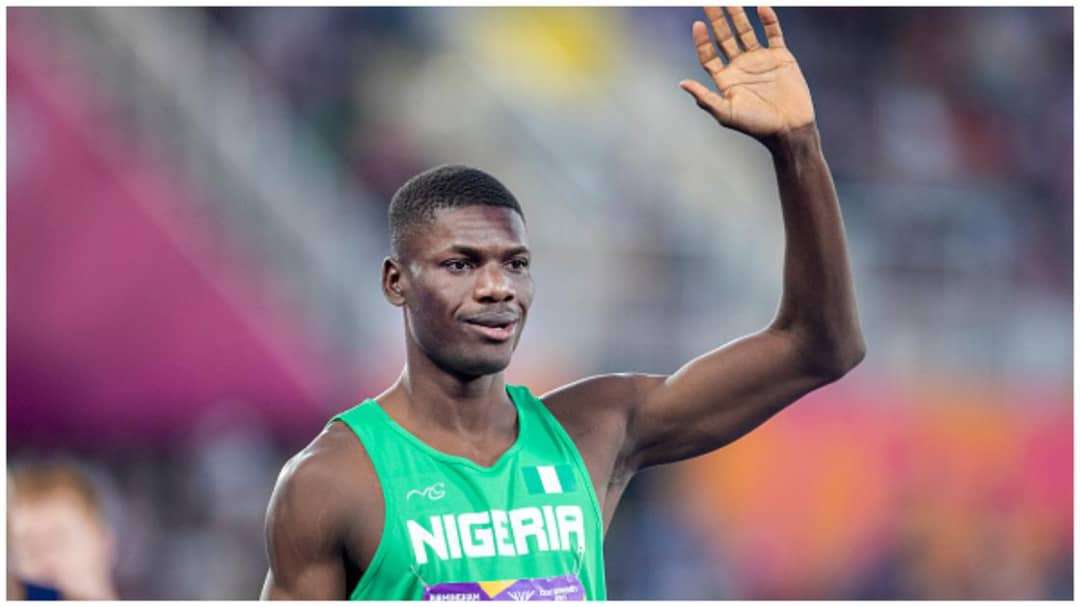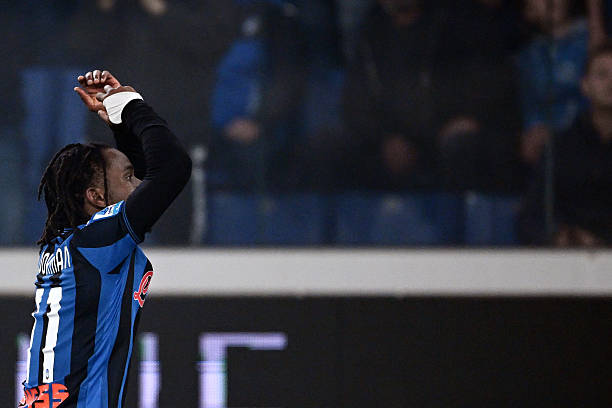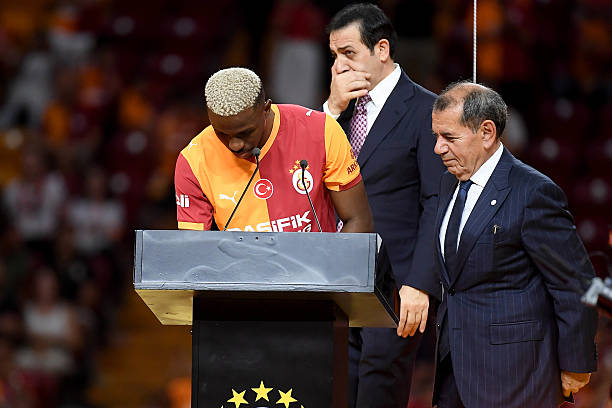The excitement across Nigeria’s sports-loving communities was palpable as viewing centers and living rooms from Lagos to Kaduna tuned in to witness Ezekiel Nathaniel, the country’s fastest-rising 400m hurdles talent, storm the track at the Tokyo 2025 World Athletics Championships. In a final filled with international heavyweights, the young star delivered a breathtaking national record of 47.11 seconds. Although Nathaniel finished just outside the medals in fourth place, his achievement has sparked intense discussion among Nigerian fans and global athletics followers alike.
Tense Moments, Controversial Decisions
The drama escalated after the finishing tape, as initial results suggested Nathaniel may have secured a historic bronze. American favourite Rai Benjamin, winner of gold on the day, was at first disqualified for an alleged lane infringement. For a brief, electrifying period, social media was flooded with messages of congratulations for Nathaniel’s assumed podium position. However, following a review and successful appeal, Benjamin was reinstated, reclaiming gold with a powerful performance. Nathaniel was bumped back down to fourth, sparking both disappointment and admiration from supporters in Nigeria, Ghana, and the wider West African athletic community.
Rising Through the Ranks: Nathaniel’s Record-Setting Year
Nathaniel’s Tokyo exploits are merely the latest milestone in what has been a phenomenal ascent for the 21-year-old. This latest run not only set a new Nigerian benchmark in the 400m hurdles—bettering his previous record of 47.31 seconds from earlier in 2025—but also symbolised a shift in African track and field potential. According to the Athletics Federation of Nigeria (AFN), “Ezekiel has established himself as a beacon for the next generation of athletes and has proven Nigeria belongs on the world stage.” (Official report, June 2025).
The men’s final in Tokyo saw Brazil’s Alison dos Santos earn silver, clocking a rapid 46.84 seconds, while Qatar’s Abderrahman Samba took the bronze with 47.06 seconds. These times, measured against Nathaniel’s, reinforce how razor-thin the margins are at elite level—and highlight the remarkable progress Nigeria’s young star has achieved in so short a time.
From Lubbock to the World: A Journey of Breakthroughs
Born in 2003, Nathaniel’s pathway to national stardom began far from home. He competes for Baylor University in Texas, where his international career first gained traction in 2022. As a freshman, he stunned observers by breaking a record that had stood for decades in Nigeria. Back then, Henry Amike’s 48.42 seconds at the 1987 All Africa Games set the standard; Nathaniel equaled and then surpassed that at the Big 12 Conference meet in Lubbock, Texas, posting the same time and instantly becoming the youngest Nigerian to hold that mark.
Local sports development analysts, like Lagos-based coach Sunday Okonkwo, say that “Nathaniel’s U.S. collegiate experience has given him the edge in both training and competition. It’s the blend of talent and cutting-edge sports science that’s moving our athletes forward.” (Okonkwo, June 2025 interview).
In June 2025, at the NCAA Outdoor Championships in Eugene, Oregon, Nathaniel captured the 400m hurdles crown. His winning time of 47.49 seconds broke his own national record yet again and registered as the third fastest NCAA time in history. The moment left sports journalists and fans reflecting on what more could be possible if Nigeria’s domestic track facilities and support structures were further strengthened.
Nigerian and African Context: Why Nathaniel’s Feat Resonates
For many Nigerians and Africans, Nathaniel’s journey takes on special significance. Athletics, especially sprinting and hurdling, has a storied tradition in the region, but athletes have often had to struggle with limited resources, aging sports infrastructure, and inconsistent funding. Nathaniel’s consistent progress echoes the determination of a new generation, eager to demonstrate that world-class excellence is possible with hard work and the right support.
Comparisons with previous Nigerian greats, such as Sunday Bada, Falilat Ogunkoya, and Henry Amike, are inevitable. According to sports archivist Funmi Adedeji, “What makes Ezekiel’s achievement unique is his ability to break and re-set records so rapidly. This shows how much the competitive landscape has changed since the 1980s.” (Adedeji, African Sports History Review, July 2025).
Nathaniel’s record-breaking feat doesn’t just resonate with Nigerian audiences; Ghanaians and thousands of West African fans see in his performance a reflection of the region’s shared ambitions. Numerous online communities and fan groups across Africa lauded him as a ‘true son of the soil’, with users underscoring the importance of continued investment in grassroots athletics across the continent.
Breaking Barriers and Raising Expectations
Nathaniel’s 2025 season was filled with headline moments beyond the World Championships. In the NCAA semifinals, he became the first man ever to break the 48-second barrier in the 400m hurdles semifinal round, clocking an electrifying 47.86 seconds. This stunning result underscores his position at the vanguard of collegiate and African athletics, opening doors for other West African talents to follow in his footsteps.
According to leading athletic coach Stanley Nwankwo, “Ezekiel’s consistency and mental resilience set him apart in major competitions. The fact that he executes his races under such pressure, and continues to lower his own records, says a lot about his discipline.” (Nwankwo, Nigerian Track Coaches Association, June 2025).
Challenges and the Road Ahead
While Nathaniel’s achievements have been widely celebrated, there are also calls for more institutional support at home. Nigerian sports journalist Aina Bashiru cautions that “talent alone isn’t enough; our athletes need quality facilities, nutrition, medical care, and prompt funding for international competitions.” (Bashiru, Sports Updates Nigeria, July 2025).
Many experts and former athletes have called on the Nigerian Ministry of Sports to use Nathaniel’s landmark as a springboard for deeper reforms in the country’s sporting sector. Proposals include better partnerships with private sponsors, improving grassroots development, and ensuring coaches have access to modern training techniques and equipment.
Nigeria in the Global Athletics Arena
Nathaniel’s performance has not gone unnoticed on the world stage. Athletics analysts have placed him among a select group of African runners poised to challenge the sport’s traditional titans from the US, Europe, and the Caribbean. His rise symbolizes Africa’s growing footprint in global sports, reflecting broader trends seen with Kenyan and Ethiopian distance runners and South African sprinters.
Local Voices: Inspiration for the Next Generation
For many aspiring athletes across Nigeria and West Africa, Nathaniel’s impossible-looking times are now proof that hard work, overseas exposure, and strong support networks can deliver world-beating results. “My son wants to be the next Ezekiel,” says Blessing Onu, a Lagos mother whose child trains at the National Stadium. “We hope these successes will inspire more government and private companies to support our sports programmes.” (Onu, July 2025).
As Nathaniel looks towards his next international assignment, Nigerian fans remain hopeful. The question now is not if, but when, his efforts will translate into medals—perhaps even Olympic gold. His story, marked by resilience, talent, and unyielding ambition, is seen by many as a rallying point for African athletes everywhere.
What’s Next for Ezekiel Nathaniel—and for Nigerian Athletics?
With each dazzling performance, Nathaniel inspires new dreams and resets the boundaries of what’s possible for African hurdlers. Local sports commentators agree that his continued development could signal a new golden era for Nigeria’s track and field athletes. As his career evolves, the world will be watching—eagerly anticipating the next record-breaking display from one of Africa’s fastest men over the hurdles.
What do you think about Ezekiel Nathaniel’s incredible season? Could his record-breaking performances inspire a new generation of Nigerian and West African track stars? Drop your thoughts and join the conversation below—and don’t forget to follow us for updates on the latest breakthroughs in African sports!
Share your story or sell your exclusive by emailing us at story@nowahalazone.com and get your content featured.
Want to stay ahead with the latest in Nigerian and African sports?
Follow us on Facebook,
X (Twitter), and
Instagram for real-time updates, behind-the-scenes, and more engaging stories!









